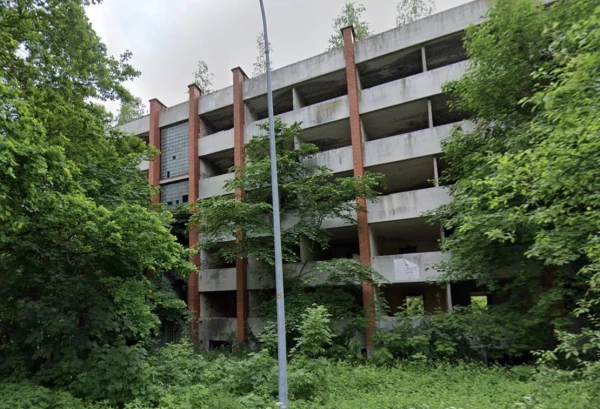
A week ago, the Degpunktā program (TV3) reported on Konstantin, whom journalists met in one of the abandoned houses in Jūrmala. The man, along with his partner, has been living in one of the rooms of this building under extremely difficult conditions for 25 years. Ten years ago, the Jūrmala City Council assigned the house emergency status, but since then nothing has changed — the building remains as it was.
When the Degpunktā film crew arrived at the site where a fire had recently been extinguished in an abandoned house on Slokas Street, they met a man named Konstantin, who has turned a room on the third floor into his home for a quarter of a century (details here). The "apartment" has beds and a stove, they get water from a well, and there is a toilet set up in the neighboring room. Warning signs surround the building — the house is on the verge of collapse.
"Well, of course, it’s dangerous. But they said it’s even more dangerous there because two side panels have already collapsed. Here we wait for this one to fall," said resident Konstantin at the time.
A classic story for Latvia: the house was started but for some reason was never completed. With four walls and windows installed, it quickly became inhabited by people who found themselves on the margins of life. Upon learning from journalists that someone was living permanently in the abandoned building, the Jūrmala City Council reacted.
"On October 7, an inspection was conducted at the specified address together with representatives of the Social Service of the Welfare Management. In one of the rooms on the third floor, a man and a woman were found. They were offered to go to a night shelter in Jūrmala. At first, they refused, citing fatigue and unwillingness to go anywhere. The police emphasized that being in the building is prohibited, as its condition poses a threat to life and health. After negotiations, the couple agreed to voluntarily go to the shelter and gathered their most necessary belongings," the Jūrmala City Council commented.
Three days later, Degpunktā journalists visited the building again. What they saw was not a surprise: Konstantin and his companion had returned "home."
According to them, they spend nights in the shelter and return to their room during the day — after all, they have nowhere else to go. The woman recounted how they ended up in such a situation: once, this was not an emergency house at all — during construction, there were quite livable rooms, and the couple purchased one room. But soon everything fell into disrepair.
"Because homeless people started coming in and breaking everything. What can we do? Some owners came, broke everything — windows, doors," the woman said.
Not wanting to lose their home, the couple tried to negotiate with one of the building's owners.
"We asked — leave us the room! We will be caretakers, there will be order, no dirt. No one disturbs us, Kaspars — our district inspector, everything is fine," the woman assured.
Everyone is free to do as they wish with their property — whether there are doors, floors, windows or not. But everything changed ten years ago when the Jūrmala City Council's building inspection came.
"During the inspection of the apartment building, it was found that there are no windows and doors in the building, glass blocks are broken in the stairwells, there is no finishing and floors in the corridors and rooms, and in some places, there is a buildup of household waste. The building poses a threat to the life and health of people, as well as to the environment. The house must be put in order or demolished," the Jūrmala City Council stated.
The building was assigned the status of emergency. For the tenth consecutive year, the city administration imposes repeated fines on the owners, demanding that the house be closed so that no one can enter. The amount of fines has increased over the years, but nothing changes. Legal nuances were explained to Degpunktā by jurist Jānis Berovskis: "We need to look at who the owners are. For individuals, the fines are lower, but for legal entities, they are higher and can reach tens of thousands of euros."
The five-story building is divided among several owners and holders. There are a total of 122 apartments or rooms in the house. 84 of them are registered in the Land Register, there are 17 owners and users, and there is no data on 18. The responsibility for the safety of the house lies with all co-owners.
"If the house is emergency and, as a result, for example, a collapse causes harm to third parties, then all co-owners bear equal responsibility because they are all responsible," the lawyer clarified.
He added that the presence of people in an emergency building can have serious legal consequences for the owners — from administrative fines to criminal liability.
Degpunktā spoke with a lawyer representing one of the owners. He declined to provide an official comment but explained that his client financed the installation of fencing and alarms to prevent anyone from entering the house, but knew nothing about the people living there.
However, this contradicts the facts: over many years of police checks, inspections, and actions by the owners, no one noticed or wanted to notice that people were living in the house.
The Jūrmala City Council reported that the call from Degpunktā was the first case they heard of someone settling in the dangerous emergency house at 1 Slimnicas Street. According to the couple themselves, they will die there — either due to health problems or when the ceiling finally collapses.


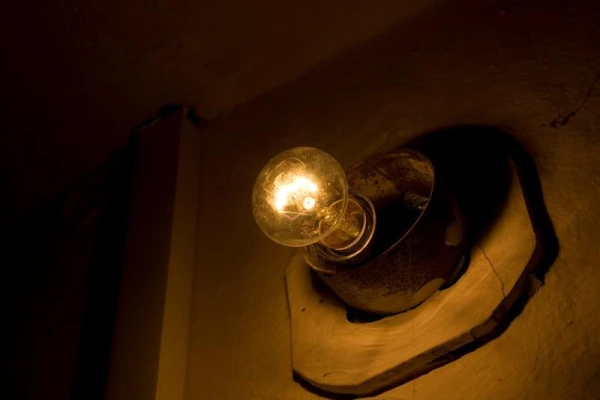
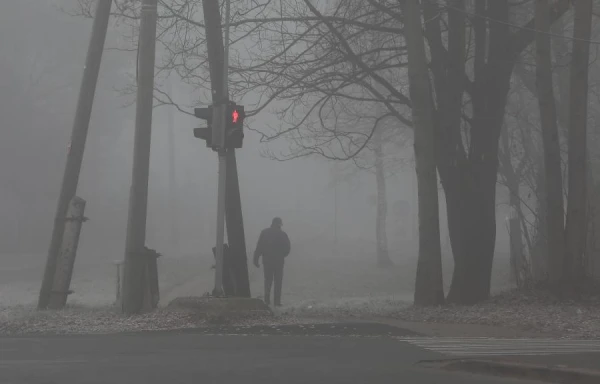
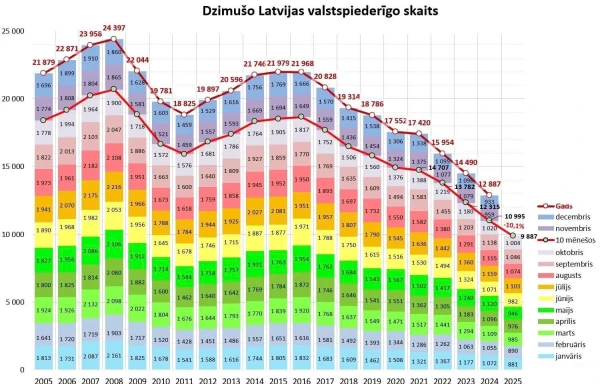



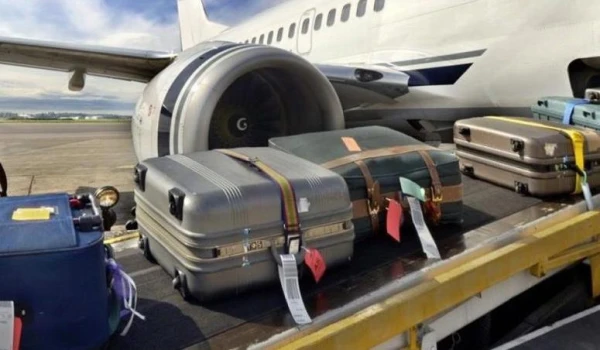



Leave a comment